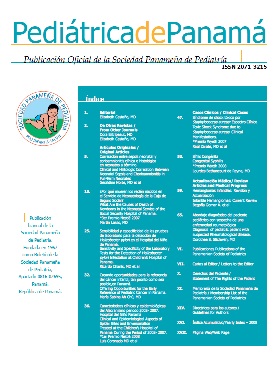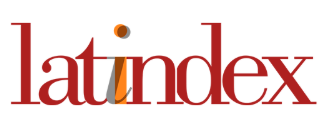Restaurar el humanismo en la atención médica
Autores/as
DOI:
https://doi.org/10.37980/im.journal.rspp.20222133Palabras clave:
humanismo, atención de saludResumen
Restaurar el humanismo en la atención médica
La medicina has sido oconsiderada a través de la historia como una profesión moral y ejercida bajo valores y principios éticos [1], de allí que se considere que la base de su ejercicio es el humanismo [2]. La atención y el cuidado humanista acerca al paciente, le confiere confianza con el médico, necesaria para tener una historia puntual y cierta de la salud y la enfermedad, como garantía del cumplimiento de las medidas recomendadas para que mantenga su salud o la recupere. Esta relación necesaria entre el paciente y el médico no la construyen los laboratorios ni las radiografías o la tecnología, no la hacen ni siquiera las recetas, se logra a través de escuchar atentamente, empatizar con respeto las emociones y creencias del paciente, reconocer sus necesidades anímicas y establecer un diálogo enriquecedor para ambos, mediante una interacción clara y sincera frente a los valores humanos [3].
El humanismo en la práctica médica se aprende o se cultiva acercándonos y estudiando el arte, la literatura, explorando la narrativa del paciente y del médico, observando el comportamiento alrededor nuestro, el de la persona humana frente a la enfermedad, sin la imposición o superioridad del galeno. La ética humanística emana de ese humanismo que crece de raíces sociales y de entender que la enfermedad disminuye la capacidad del enfermo de tener una vida plena. Pero la enfermedad y el agotamiento laboral o “burn-out” también disminuye la capacidad del médico para atender con atención y calidez a los pacientes [4].
Los dilemas médicos en la práctica diaria se presentan con una frecuencia inusitada. De cada situación aprendemos y, es por ello, que los códigos de ética de la profesión médica se hacen alrededor de unos valores duraderos y de las múltiples experiencias que se van acumulando en el transcurrir de la práctica. Uno de los puntales en esta época, cuando los grupos anti-vacunas divulgan fácilmente sus argumentos sin siquiera certeza ni precisión, es el del manejo en la práctica pediátrica de la familia y el niño de padres ansiosos, más que contrarios, frente a la vacunación y a las vacunas. En la literatura sajona, el término para ellos es hesitant. Su traducción aproximada es ansioso, incierto.
Frente al grado de incertidumbre que siempre es el escenario en la prácica médica, donde se nos pide no equivocarnos aún cuando no tenemos información suficiente, perfecta o veraz [5], este asunto es un dilema. Y si la medicina es incierta, la ciencia también lo es y por ello contínuamente busca la verdad. Sin embargo, el paciente espera de nosotros y nos espera. ¿Estamos preparados?
A pesar del título de este escrito, no voy a entrar a presentar o discutir cómo se restaura el humanismo en la enseñanza de la medicina o en su práctica. Traigo mejor, una situación magnificada en estos últimos 3 años de pandemia y basado en varias discusiones éticas de Colecciones Pediátricas, de la Academia Americana de Pediatría [6], que, sin dudarlo, toca el título puntualmente. Me refiero a cómo debe el pediatra afrontar la situación frecuente de dar atención a hijos de padres con incertidumbres sobre las vacunas y la vacunación.
Las situaciones donde los padres desobeden las recomendaciones de los pediatras no estás limitadas al asunto de la vacunación y no indican desconfianza de los padres hacia sus pediatras. Como bien lo señala John D. Lantos, complacen a sus niños con alimentos chatarra, les dan pantallas desde muy pequeños para distraerlos de su cuidado, les permiten conducir bicicletas o scooters sin protección de la cabeza o las extremidades, les compran a muy temprana edad vehículos como los 4-wheels, y les inician antibióticos por cualquier enfermedad febril, todo esto a pesar de los consejos del pediatra de no hacerlo. El argumento del riesgo de infectarse con organismos patógenos en la sala de espera se desvanece al conocer que la concentración de esos organismos es muy pequeña y que para un niño asintomático no vacunado hay mayor riesgo de enfermarse allí por la presencia de otros niños cuyos padres no los vacunan contra la influenza. Estos niños no vacunados en las salas de espera deben portar máscaras faciales para proteger a aquellos niños vulnerables a una infeción.
Hoy no es infrecuente que el pediatra encuentre padres en su consultorio que rehúsan vacunar a sus hijos. Está popularizado que atender a niños no vacunados se constituye en un riesgo serio para niños no vacunados e inmunocomprometidos. Y, en esa línea de pensamiento, claro que es inaceptable que niños no vacunados pongan en riesgo a otros niños y se atiende el principio de no maledicencia. Por el otro lado, alguno que otro pediatra, a veces más frecuente de lo que creemos, toma personal la decisión contraria a sus consejos y considera que esto es un indicador de desconfianza de los padres del niño para con él. La tercera preocupación es que la sala de espera de los pediatras es ya un alto riesgo de infección. En toda situación el principio sigue siendo “Primun non nocere” (“Primero no hacer daño”), que constituye el pilar de uno de los 4 prinicipios bioéticos: el valor de la “no maleficencia”.
Las salas de espera no son mayor riesgo de infección que no estar vacunado. El riesgo está en que los ninõs no son protegidos anualmente contra el flu de temporada porque sus padres rechazan vacunarlos. Los niños inmunocomprometidos que van a la clinica pediátrica están seguros si atienden la consulta con máscara facial. Otra manera de darle seguridad a los padres y proteger a estos niños es facilitarles que esperen en sus autos hasta que se les llame para que entonces se acerquen a la clínica. Es bien conocido que la frecuencia como ocurren enfermedades prevenibles por vacunas en niños inmunodeficientes es muy rara y, mucho más raras, si se trata de infecciones para las cuales hay vacunas disponibles. Los pediatras podemos revisar el estado de vacunación de los padres para que se vacunen. Ellos, los padres no vacunados, pueden transmitir enfermedades infecciosas en las salas de espera más que cualquier otra persona que comparte esas salas.
El pediatra, seguro que el profesional médico que más goza el ejercicio de su profesión, no solo vacuna, no solo es un vacuandor. El pediatra hace medicina preventiva y educación sobre higiene, salud, enfermedad, crecimiento, desarrollo. El pediatra conversa sobre los riesgos de accidentes domésticos o en la práctica de deportes o incluso en actividades de diversión de los niños. También conversa sobre por qué el niño y el adolescente están a mayor riesgo de envenenamientos, accidentes vehiculares, uso y consumo de sustancias, adicciones, decisión y planeamiento de quitarse la vida, comportamiento sexual humano, coito no protegido. Todos también conversamos sobre el embarazo precoz e indeseado, las enfermedades de transmisión sexual. Esta función múltiple del pediatra nos debe hacer reaccionar que no es buena idea rechazar la atención de niños no vacunados en nuestros consultorios, que faltamos al prinicipio de beneficencia. Con ello lo estaríamos privando de todas las otras funciones que ejercemos para vigilar el crecimiento y el desarrollo de los ninõs.
Esta dualidad o contraposición de principios, el de la no meledicencia y el de la beneficencia, para excluir pacientes y familias no inmunizadas y para ofrecer otra serie de beneficios al crecimiento y desarrollo de los niños no aclara la posición que debemos tomar. Es el momento entonces, como comentan Kenneth Alexander y Tomas Lacy de aplicar el principio del dobre efecto, mediante el cual, cuando una acto con intención positiva conlleva un efecto negativo muy pequeño o mínimo, el acto es todavía positivo. Para ello el acto positivo debe ser la intención primaria y no es la intención, el componente negativo. En el caso que discutimos, aceptado que el riesgo de transmitir una enfermedad prevenible por vacunas a un niño vulnerable en la oficina pediátifca es muy bajo, resulta asertivo considerar que el cuidado que se le provee a niños no inmunizados en la misma práctica pediástrica, crea más efectos positivos que las consecuencias negativas no intencionados de un riesgo aumentado para niños vulnerables [7].
Cierto es que los médicos solemos estar más y mejor informados que los padres y estamos en posción de educarles, pero hay ocaciones en que los padres conocen más de una condición que el pediatra. Esto es particularmente cierto con enfermedades raaras. Prudencia y humildad deben acompañarnos en la relación con el paciente o sus padres para que la relación de confianza prospere. Ante la presencia de padres que rehúsan vacunar a sus niños, el pediatra debe acercarse para conocer sus valores y temores, lo que conocen y desconocen sobre las vacunas los padres y tantas veces como sea necesario, en visitas subsiguientes, volver sobre el asunto. Esto es una acción moral y éticamente superior a aquella de cerrarle las puertas del consultorio a estas familias con temores fundados o infundados sobre las vacunas y la vacunación.
Licencia
Derechos de autor 2022 Infomedic Intl.Derechos autoriales y de reproducibilidad. La Revista Pediátrica de Panamá es un ente académico, sin fines de lucro, que forma parte de la Sociedad Panameña de Pediatría. Sus publicaciones son de tipo gratuito, para uso individual y académico. El autor, al publicar en la Revista otorga sus derechos permanente para que su contenido sea editado por la Sociedad y distribuido Infomedic International bajo la Licencia de uso de distribución. Las polítcas de distribución dependerán del tipo de envío seleccionado por el autor.







